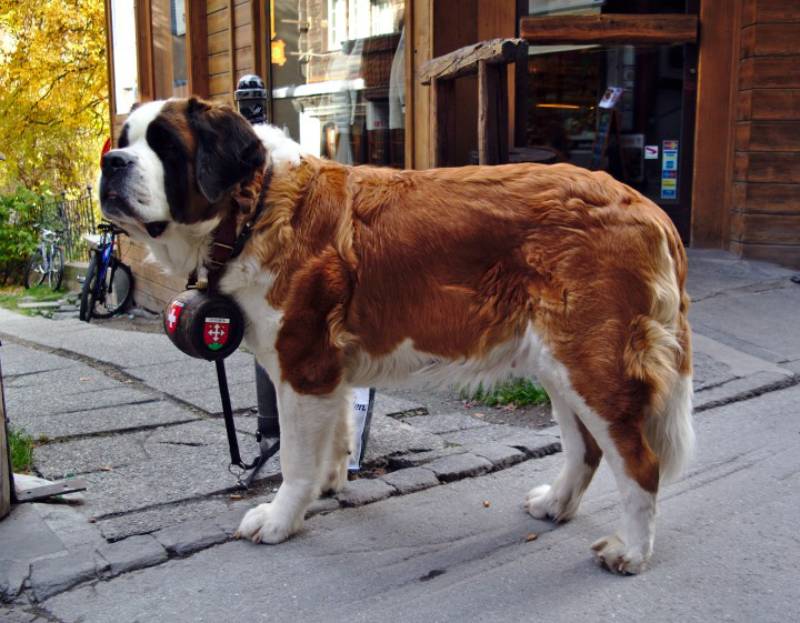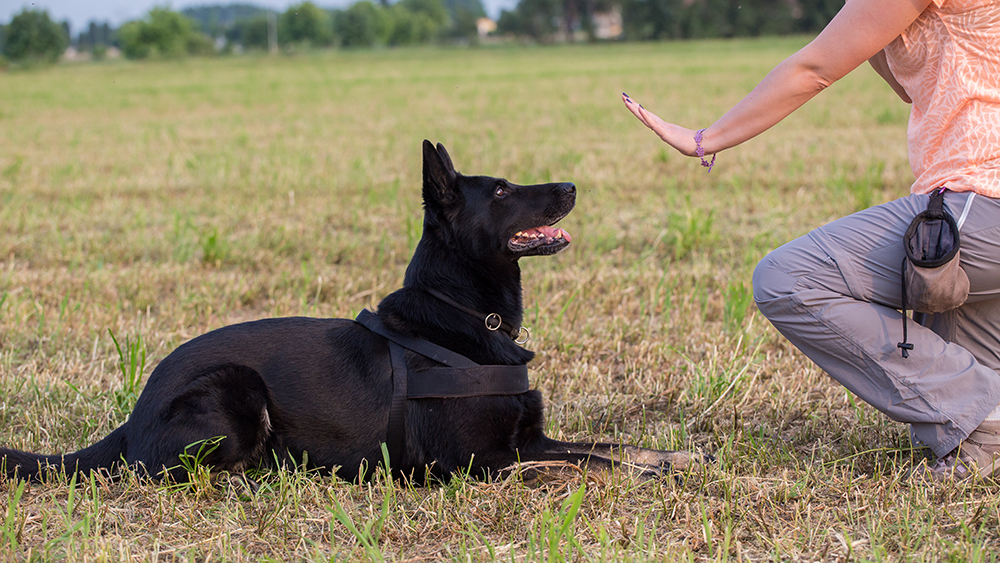The Saint Bernard is a large, athletic breed, beloved by canine enthusiasts all around the world. These “gentle giants” are known for being loyal, family-friendly, and sociable. However, few people talk about the brains of these big lovable dogs. So, how smart are St. Bernards? While you won’t find them on any “smartest dog breed” lists, this doesn’t mean they are not intelligent. This is a dog whose ancestors were brave and resourceful canines that provided aid and rescue to travelers lost in the vastness of the Swiss Alps, so perhaps intelligence is in the eye of the beholder!
Here’s What Stanley Coren Has to Say
A psychology professor and researcher of neuropsychology, Stanley Coren is well-known for his studies into canine behavior and intelligence.1 He published the highly acclaimed book, “The Intelligence of Dogs,” in 1994, in which he ranked more than 100 dog breeds based on their perceived intelligence. Today, he focuses on working and obedience intelligence, but he also considers aspects like adaptivity and instincts.
Working and obedience intelligence was considered most when Coren and his colleagues worked to determine the intelligence of each breed that they studied. The number of repetitions that it took for a dog to learn a new skill was a major factor in how they determined intelligence. Coren maintains that more than half of a dog’s intelligence is inherited, while less than half is derived from environmental conditions.
According to Coren’s book, Saint Bernards have fair working and obedience intelligence. They are ranked number 65 out of more than 100 dogs that Coren and over 200 colleagues judged, meaning that it usually takes between 25 and 40 repetitions before this breed fully understands a new command. The brightest dogs on the list can learn new commands in fewer than five repetitions!
So, does this mean Saint Bernards aren’t smart? Absolutely not! They tend to be more stubborn than anything, which can help explain why it might take longer to teach them commands than other dog breeds like the Poodle, Border Collie, or German Shepherd. It’s important to note that Coren has acknowledged that it can be tougher to manage a dog high in the intelligence rankings compared to those that are ranked lower, as more intelligent dogs can prove to be more challenging and independent.
Also, keep in mind that all dogs are different. Just because a dog’s breed is ranked as highly intelligent doesn’t mean the dog in question will display high intelligence marks. The same can be said for dogs whose breeds are ranked lower in intelligence.

Working and Obedience Intelligence Doesn’t Tell the Whole Story
While working and obedience intelligence is important, many other factors must be considered when it comes to overall dog intelligence. This is why so many Saint Bernard owners think that their dogs are smart, even though they’re ranked low on Stanley Coren’s list. By no means should this list stop a prospective owner from adopting a Saint Bernard, as these dogs have many amazing traits that make them great household pets. They are a breed that would also score high points for emotional intelligence, which is why they have become a more popular companion dog rather than a working breed.
When it comes to adaptive and instinctive intelligence, Saint Bernards perform with the best of them. These dogs instinctively know how to protect their properties and human companions. They can quickly and easily adapt to unexpected situations, and they have the ability to learn new things on their own. This cannot be said for all dogs that are ranked high in working and obedience intelligence, and we must not forget the history of this remarkable breed.
St. Bernard Origins: Instinct or Intelligence?
The breed originated in a hospice of the same name (The St. Bernard Hospice) established in the St. Bernard Pass in the 11th century by a man named Bernard. It was only fitting that the dogs gifted to the hospice in the 1600s were to become the breed known as St. Bernards. The large, thick-coated dogs were originally used as guard dogs but over time, became known for their innate ability to find stranded travelers, even those covered by snow, and lead them to safety.
The iconic image of a St. Bernard with the barrel on their collar harks back to the stories of the dogs carrying flasks of rum or whiskey to help warm the blood of wayward travelers. This rescuing tendency was not something that they were trained to do but something driven by instinct, which any of those rescued would surely value more than trainability.


The Bottom Line on Saint Bernard Intelligence
Many things must be considered when gauging a dog’s intelligence, no matter what their breed happens to be. Genetics, quality of care, mental stimulation, and life experiences can all play a role in your Saint Bernard’s smarts. Don’t discount the intelligence of this breed. Although their willingness to follow commands might not be their strong suit, their instincts and ability to pick up on emotional cues might surprise you!
Featured Image Credit: fred12, Shutterstock










